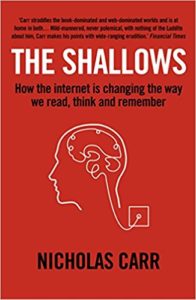
The speed of change is so fast in the era of the internet that even some of us not yet in our forties occasionally wonder whether ideas from our past are not imagined from some earlier era. One that came back to me recently was the advice that was issued several times while I was growing up: ‘If you write an angry letter, wait until the morning to post it.’ It feels like something from the age of Jane Austen, but it was practical advice which I can recall acting on.
The point being of course in that in the clear light of day, with a clearer head and better perspective on all things, the letter invariably remained unsent. Indeed it tended to be re-read, ripped up and thrown in the wastepaper bin with an air of embarrassment as well as relief.
Today. of course, there is no time delay on our emotions and no ‘postpone button’ for our rage. Indeed delaying any verdict or pronouncement has turned from a virtue into a vice. On Facebook and Twitter the crown goes to those who respond fastest. And there it meets with another reality – which is that it is the sharpest opinions which have the most chance of breaking through the online haze. Fast and harsh is the recipe for success, which is why even writers and politicians who are not especially popular or prominent as people are legends on social media. There is room for thoughtfulness, but it needs to be carved out, ring-fenced as though by a conscious act of will, as with a species at risk of extinction.
 The effect this is having in our lives as well and in our politics is starting to be understood (and to my mind no better way to comprehend this phenomenon of our time exists than Nicholas Carr’s 2010 book The Shallows: How the internet is changing the way we read, think and remember). But the problem of living through a revolution in the way we think and communicate is that even if you acknowledge that we are living through such a revolution this is only the start of the process of trying to safely think your way through it. Who knows what the post-revolution rules should be? After all, it was not as though we human beings were enormously good at self-knowledge before the rise of the internet. How much worse are we likely to become, surrounded as we now can be at the click of a button by a cocoon of necessary friends and foes? How much more does it encourage us to feel all those things we already most liked to feel: heroic, victimised, beleaguered, vindicated.
The effect this is having in our lives as well and in our politics is starting to be understood (and to my mind no better way to comprehend this phenomenon of our time exists than Nicholas Carr’s 2010 book The Shallows: How the internet is changing the way we read, think and remember). But the problem of living through a revolution in the way we think and communicate is that even if you acknowledge that we are living through such a revolution this is only the start of the process of trying to safely think your way through it. Who knows what the post-revolution rules should be? After all, it was not as though we human beings were enormously good at self-knowledge before the rise of the internet. How much worse are we likely to become, surrounded as we now can be at the click of a button by a cocoon of necessary friends and foes? How much more does it encourage us to feel all those things we already most liked to feel: heroic, victimised, beleaguered, vindicated.
The historian Sir Max Hastings – who does not appear to be a man of the internet – recently gave a fine demonstration of this. In a recent Diary piece he recounted a recent dinner thrown by him and his wife at a London club. The guest-list, he declared, was easy to come up with:
“It was merely a matter of ensuring that we included nobody who might profess enthusiasm for Trump [or] Brexit.”
What was striking was that only a couple of sentences later he continued…
“Many of us feel victims of political differences so profound that they sustain an inescapable social divide.”
This is, in its way, a classic of the genre, moving as it does from victimiser to victim in moments. One minute Sir Max is wielding the pen for his gleaning invitation list with a divisiveness of which he is happy to boast. The next he is the sufferer of just such practises by others. Perhaps social division is always what other people do. The pursuit of truth is what one does oneself.

In any case, it is increasingly obvious that as well as being a tool for extraordinary advancement, the internet also acts as a magnifier of these meaner instincts. In Britain since the Brexit vote many people have recounted the loss of friendships or even the breaking apart of relationships. Although some of this is meaningful a lot of it is the consequence of this new way of communicating. On the spur of the moment it is easy to condemn a friend or acquaintance who happens to have voted a different way or reacted in a way which we deem shabby or dishonourable. At such times we reach for the most wounding words we know. ‘Traitor’ for instance, is a term that is rarely used in face-to-face interactions. We understand its seriousness too well. Yet the accusation proliferates in every political direction online. Rarely can ‘treason’ and ‘treachery’ have been used more freely. Not since the Civil War at least.
What social media encourages people to do is to have out even the smallest differences – to burrow down on the one point you are in disagreement over even if you agree on everything else. Physical social interaction, face-to-face, works differently. It encourages people to find points of similarity. When at a dinner at a friend’s house recently I found myself talking with a lady from the south coast who had always voted Liberal Democrat and actually admired Nick Clegg, I did not unload the full armoury of contempt for her hero. It would have been rude to my host and might have spoilt the rest of the evening. Instead I sought, and found, areas of mutual interest on a wider range of issues. nline – had this lady and I ever met – we would most likely have allowed the contempt to flow openly, followed by recrimination, accusations of low-motives and possibly even a glancing insinuation of treachery.
At present the online world and the real world are talked of as though they were non-overlapping magisteria. Yet if we are going to find our way to any form of civility in the midst of the communications-revolution it will be by returning to some of the advice that served us well in our face-to-face past. It does not suit the financial objectives of Twitter or Facebook, and nor does it suit every personality type, but anyone genuinely seeking to diminish existing divisions could return to older bits of wisdom. I would start with, ‘If you think up an especially angry Tweet, wait until the morning to post it.’ There will be worse ways to stay sane through the ongoing maelstrom.










Join the discussion
Join like minded readers that support our journalism by becoming a paid subscriber
To join the discussion in the comments, become a paid subscriber.
Join like minded readers that support our journalism, read unlimited articles and enjoy other subscriber-only benefits.
Subscribe